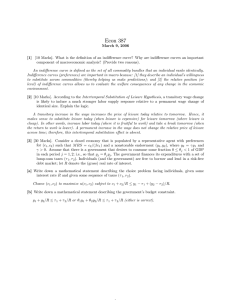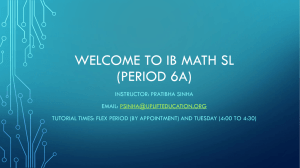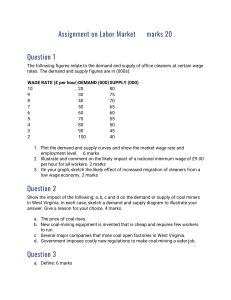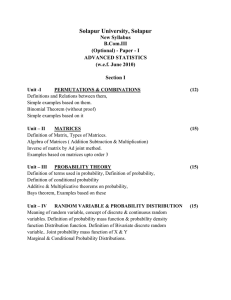Econ 387
advertisement
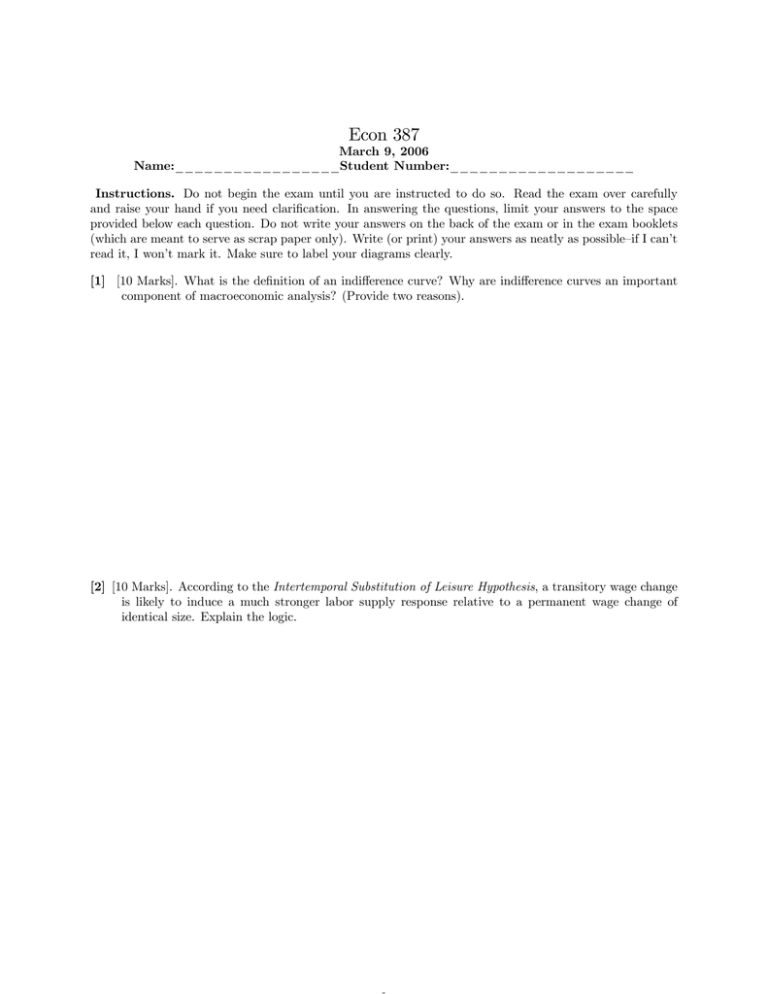
Econ 387 March 9, 2006 Name:_________________Student Number:___________________ Instructions. Do not begin the exam until you are instructed to do so. Read the exam over carefully and raise your hand if you need clarification. In answering the questions, limit your answers to the space provided below each question. Do not write your answers on the back of the exam or in the exam booklets (which are meant to serve as scrap paper only). Write (or print) your answers as neatly as possible—if I can’t read it, I won’t mark it. Make sure to label your diagrams clearly. [1] [10 Marks]. What is the definition of an indifference curve? Why are indifference curves an important component of macroeconomic analysis? (Provide two reasons). [2] [10 Marks]. According to the Intertemporal Substitution of Leisure Hypothesis, a transitory wage change is likely to induce a much stronger labor supply response relative to a permanent wage change of identical size. Explain the logic. [3] [30 Marks]. Consider a closed economy that is populated by a representative agent with preferences for (c1 , c2 ) such that M RS = c2 /(βc1 ) and a nonstorable endowment (y1 , y2 ), where y2 = γy1 and γ > 0. Assume that there is a government that desires to consume some fraction 0 ≤ θj < 1 of GDP in each period j = 1, 2; i.e., so that gj = θj yj . The government finances its expenditures with a set of lump-sum taxes (τ 1 , τ 2 ). Individuals (and the government) are free to borrow and lend in a risk-free debt market; let R denote the (gross) real rate of interest. [a] Write down a mathematical statement describing the choice problem facing individuals, given some interest rate R and given some sequence of taxes (τ 1 , τ 2 ). [b] Write down a mathematical statement describing the government’s budget constraint. [c] Solve for the equilibrium interest rate R∗ as a function of γ, β, θ 1 and θ2 . [d] Explain how R∗ depends on the parameters γ and β (provide economic intuition and an interpretation of these parameters). [e] Imagine that initially, the Ministry of Finance sets taxes to balance the budget in each period; i.e., τ 1 = θ1 y1 and τ 2 = θ2 y2 . Imagine further that there is an exogenous shock (e.g., a war) that requires a transitory increase in government spending (i.e., ∆θ1 > 0 ). What effect does this shock have on the interest rate and why? [f ] How does your answer to the previous question change if the government keeps current taxes fixed at their initial level (so that ∆τ 1 = 0 )?





